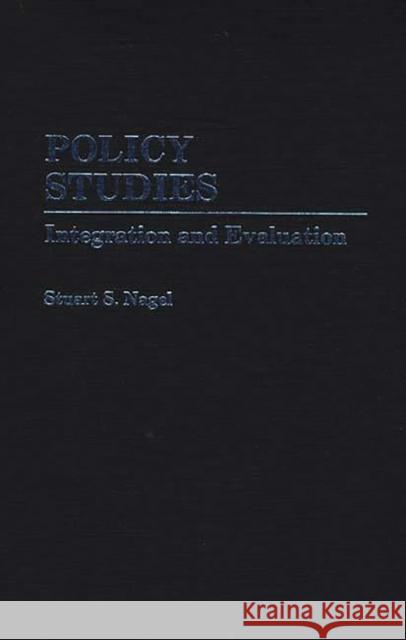Policy Studies: Integration and Evaluation » książka
Policy Studies: Integration and Evaluation
ISBN-13: 9780313262562 / Angielski / Twarda / 1988 / 320 str.
Less fragmented than the author's earlier work, this book synthesizes Nagel's perspective on the field of policy analysis. As the field's principal organizer and leading promoter, one is indebted to Nagel for his energy, enthusiasm and resourcefulness. This volume is itself imbued with such qualities. It covers vast territory, insistently counters the skeptics, and develops original schema for evaluating the work of the field. Furthermore, as vintage Nagel, the book is highly structured, with many definitions, lists, and prenamed series of ideas. The author provides numerous hypothetical examples of his points, worked out in succinct formulas and terse explanations. Nagel is unswervingly convinced of the correctness of the rationalist perspective, and anchors himself firmly in behavioralist political science while accepting the contributions from other social sciences. Not one to qualify a statement or beat around the bush, the author enunciates many guiding principles and values, such as effectiveness, efficiency and equity. Nagel discusses software options for those interested in conducting analysis with microcomputers. He also gives advice on teaching with computers. Important for graduate students and university libraries. "Choice"
The purpose of this work is twofold. First, it attempts to integrate the basic ideas that relate to policy studies. These include the definition of concepts, the establishment of criteria for judging policy studies research, and the clarification of policy goals. Second, the volume proposes to evaluate the methods of policy evaluation themselves, and to assess the field as a whole.
Designed to serve as a definitive analysis of policy studies, this volume covers basic concepts, research criteria, societal goals, and policy alternatives. It also examines analytic methods, optimizing, statistics, quasi-experimentation, behavioralism, multicriteria decision making, evaluation, research, legal analysis, and conflicting critiques of the field. It was written for researchers and instructors of public policy studies, and will also assist public policy specialists and others interested in the application of social science and other fields of knowledge to important public policy issues.











